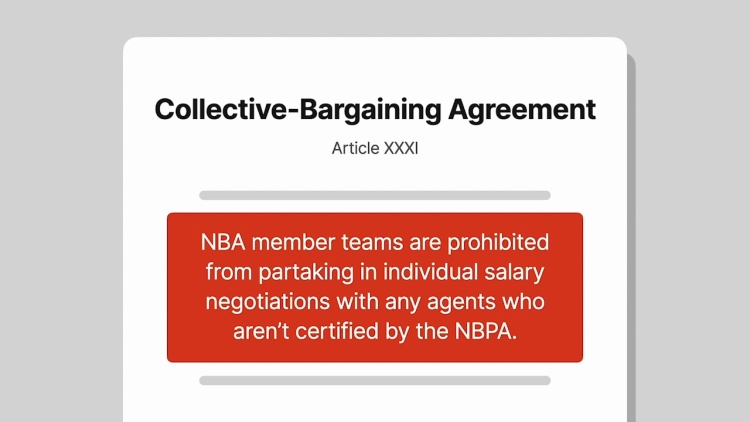Collins v. NBPA & Grantham
United States District Court for the District of Colorado
850 F. Supp. 1468 (1991)
- Written by Craig Conway, LLM
Facts
Thomas Collins (plaintiff) served as agent for several National Basketball Association (NBA) stars, including Kareem Abdul-Jabbar. Shortly after the National Basketball Players Association (NBPA) enacted regulations requiring the certification of agents, Collins became certified. Thereafter, Collins allowed his certification to lapse as a result of an ongoing lawsuit initiated by Abdul-Jabbar for several breaches of fiduciary duty on the part of Collins. After Collins settled the suit with Abdul-Jabbar he applied to the NBPA for re-certification. The NBPA Committee on Agent Representation, (the Committee) which included NBPA Executive Director Charles Grantham (defendant), undertook an extensive informal investigation into Collins’ dealings with Abdul-Jabbar, including examination of documents and meetings with Collins and Abdul-Jabbar. At the end of the investigation, the Committee decided not to re-certify Collins. Instead of appealing the decision before an arbitrator, Collins filed suit against the NBPA and Grantham alleged violations of antitrust laws. Specifically, Collins claims that the NBPA was guilty of a concerted boycott of his services as part of an effort by the NBPA to monopolize representation of professional basketball players. The NBPA filed a motion for summary dismissal of Collins’ suit.
Rule of Law
Issue
Holding and Reasoning (Matsch, J.)
What to do next…
Here's why 899,000 law students have relied on our case briefs:
- Written by law professors and practitioners, not other law students. 47,000 briefs, keyed to 994 casebooks. Top-notch customer support.
- The right amount of information, includes the facts, issues, rule of law, holding and reasoning, and any concurrences and dissents.
- Access in your classes, works on your mobile and tablet. Massive library of related video lessons and high quality multiple-choice questions.
- Easy to use, uniform format for every case brief. Written in plain English, not in legalese. Our briefs summarize and simplify; they don’t just repeat the court’s language.





